Generals
William Booth, 1878-1912
William Booth was a former Methodist preacher who became involved in mission work in East London, leading to the co-founding (with his wife Catherine) of what came to be known as The Christian Mission (1865-1878). This organisation evolved into The Salvation Army; the new name was formally adopted in 1878 and William Booth became its first leader and self-styled General. William and Catherine Booth are known as the Founders; they had eight children, all of whom became Salvation Army officers.
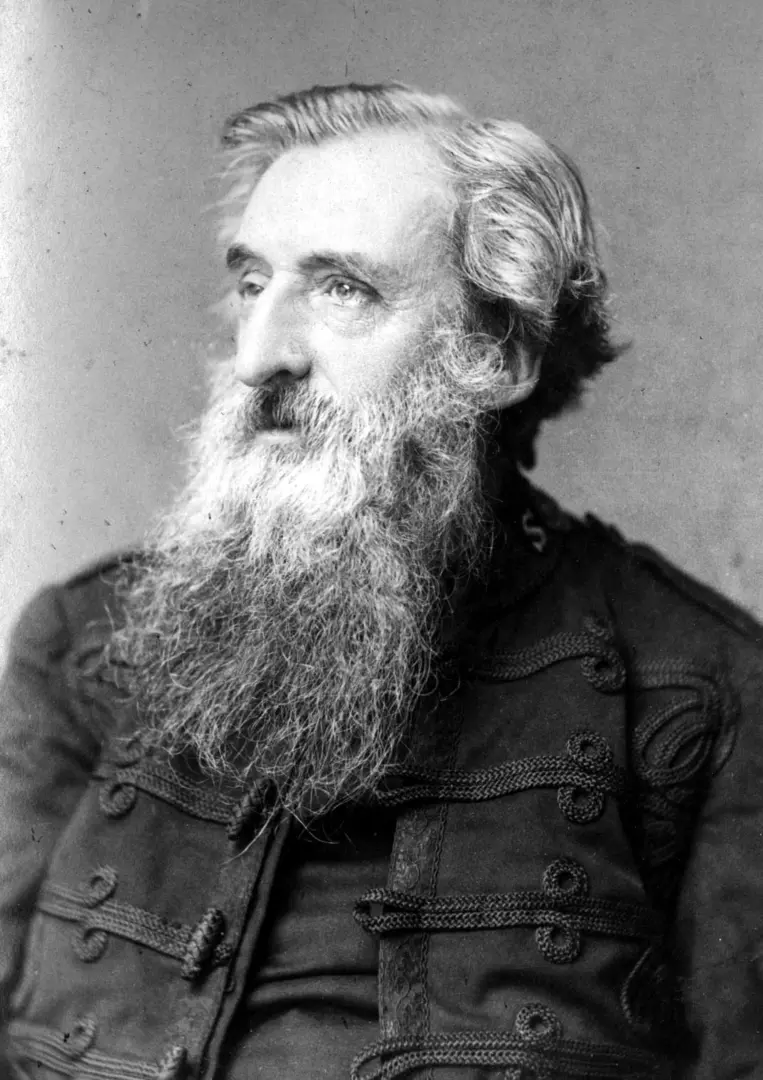
Bramwell Booth, 1912-1929
Bramwell Booth was the eldest child of William and Catherine. He served as Chief of the Staff from 1878-1912 and was nominated by his father as successor to the leadership of The Salvation Army. His leadership saw significant expansion of missionary work, post-war migration schemes and the establishment of the 'life-saving' youth groups (the scouts, guards, chums and sunbeams). Under his leadership during the First World War, The Salvation Army became a well-known provider of auxiliary services for troops and war workers. He served as General for 16 years before an extended illness in 1928 led a number of prominent Salvation Army officers to consider him no longer fit to serve as leader. In January 1929 a High Council (comprising a select group of high ranking Salvation Army officers) convened and voted to remove Booth on the grounds of ill health. This decision instituted the process of election of future Salvation Army leaders by a High Council.
Bramwell Booth's last public appearance was to conduct the stonelaying of the International (William Booth Memorial) Training College designed by Giles Gilbert Scott.
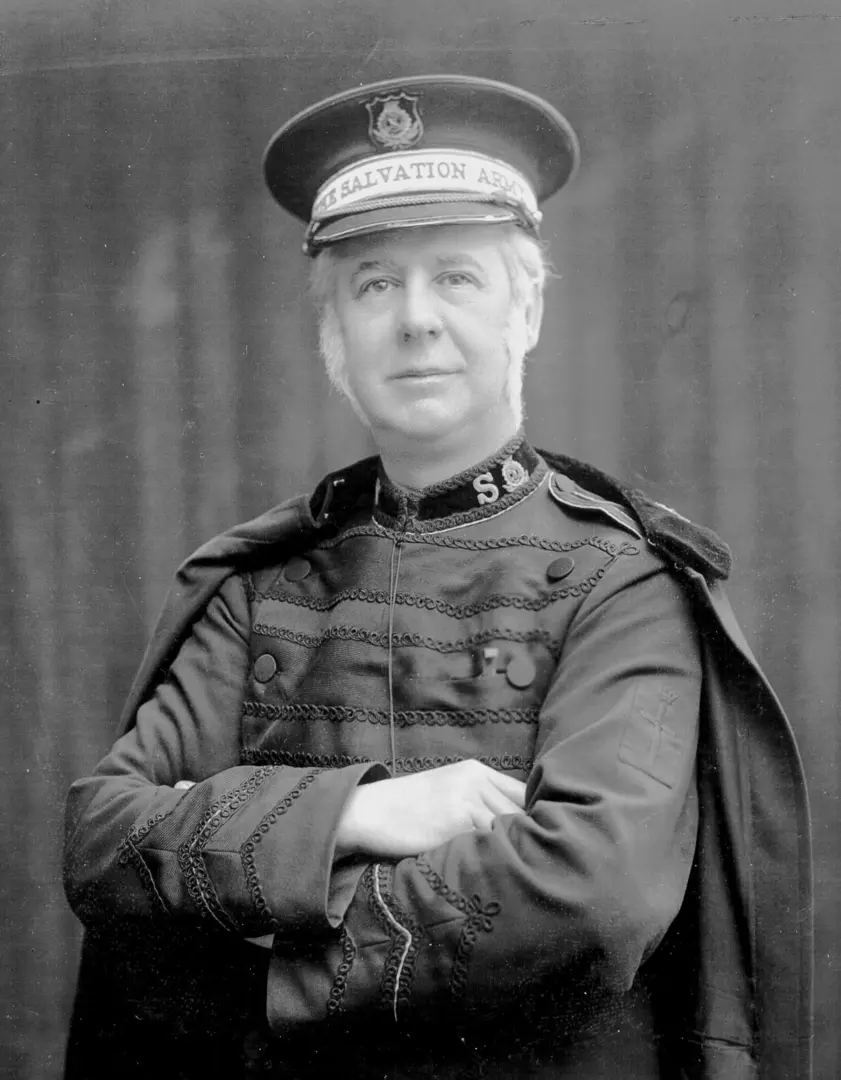
Edward Higgins, 1929-1934
Edward Higgins became an officer in 1882. He served as British Commissioner (1911-1919) and Chief of the Staff (1919-1929) before becoming the first leader to be elected by a High Council vote. He oversaw the legislation of the Salvation Army Act of 1931 which limited the leader’s powers by providing for the future election of the General by High Council elections and transferring Salvation Army assets held in the name of the General to The Salvation Army Trustee Company.
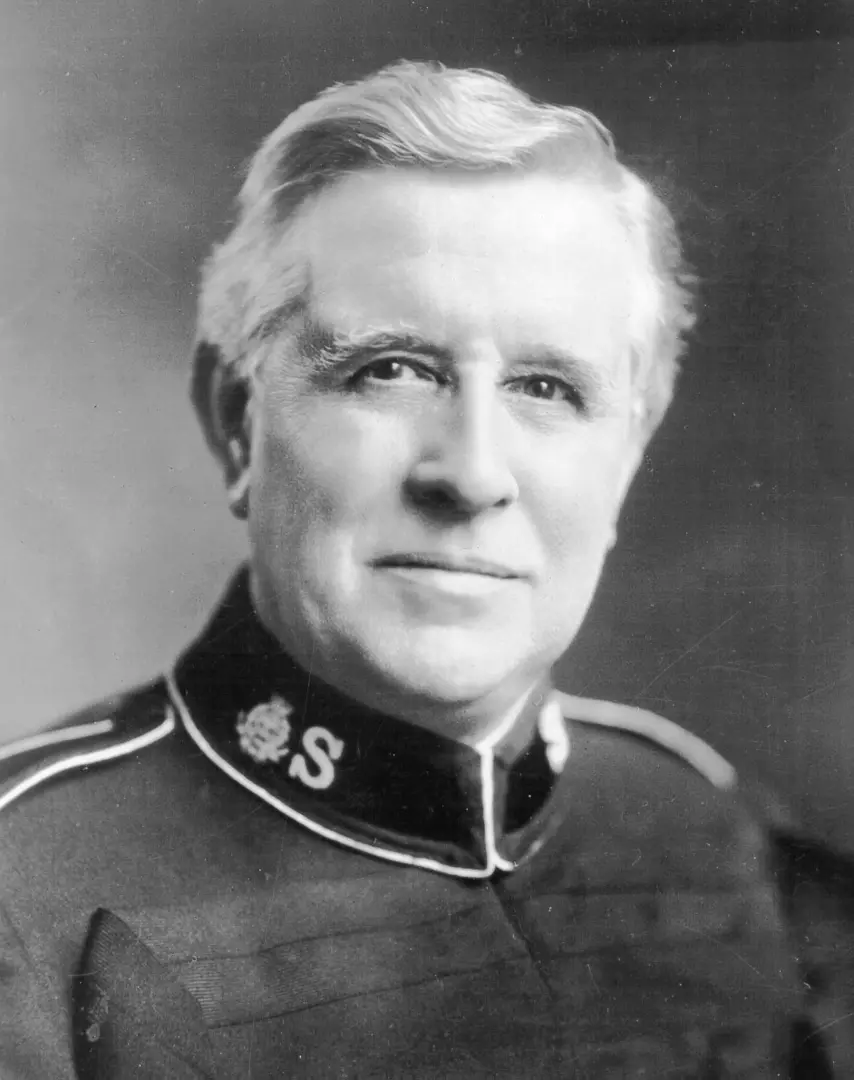
Evangeline Booth, 1934-1939
Eva Booth was the first female leader of The Salvation Army and fourth daughter of William and Catherine Booth. In her youth she was an assistant at the women's training home and at 19 was arrested while leading an open-air meeting of female cadets in Hackney. She led Marylebone, a significant corps in the West End of London, before being appointed Field Commissioner throughout Great Britain in 1888 and Principal of the International Training Garrison at Clapton in 1891. She commanded The Salvation Army in Canada (1896-1904) and then for thirty years in the USA (1904-1934). During 1928-1929 she played a determining role in changing the method of appointment for future Salvation Army leaders.
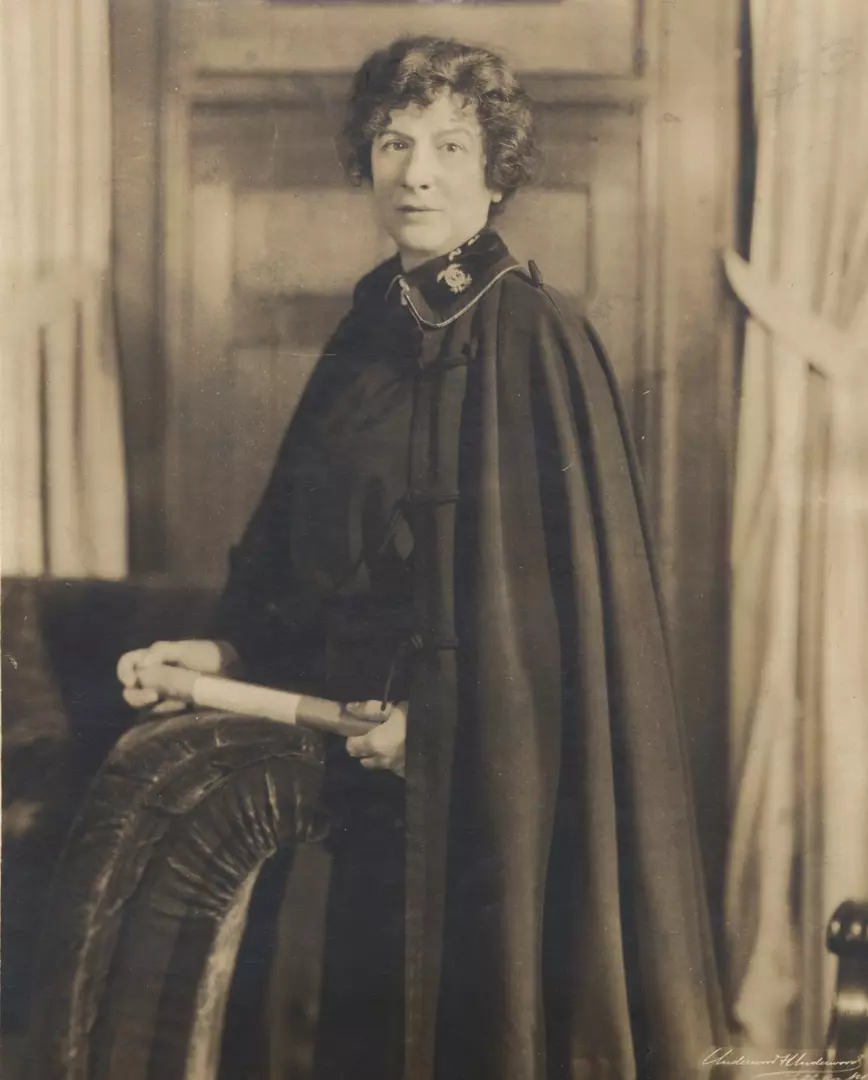
George Carpenter, 1939-1946
George Carpenter was born in Australia, making him the first non-British leader of The Salvation Army. He became an officer in 1892 and his early career was in Australia in property, social, training and literary work. A transfer to International Headquarters saw him serve as Secretary to General Bramwell Booth and head of the Literary Department. After a return to Australia, later appointments before his election as General included territorial leadership of South America East and Canada. He led The Salvation Army throughout the Second World War, overseeing the roll out of an extensive programme of civilian relief and 'services to the services'.
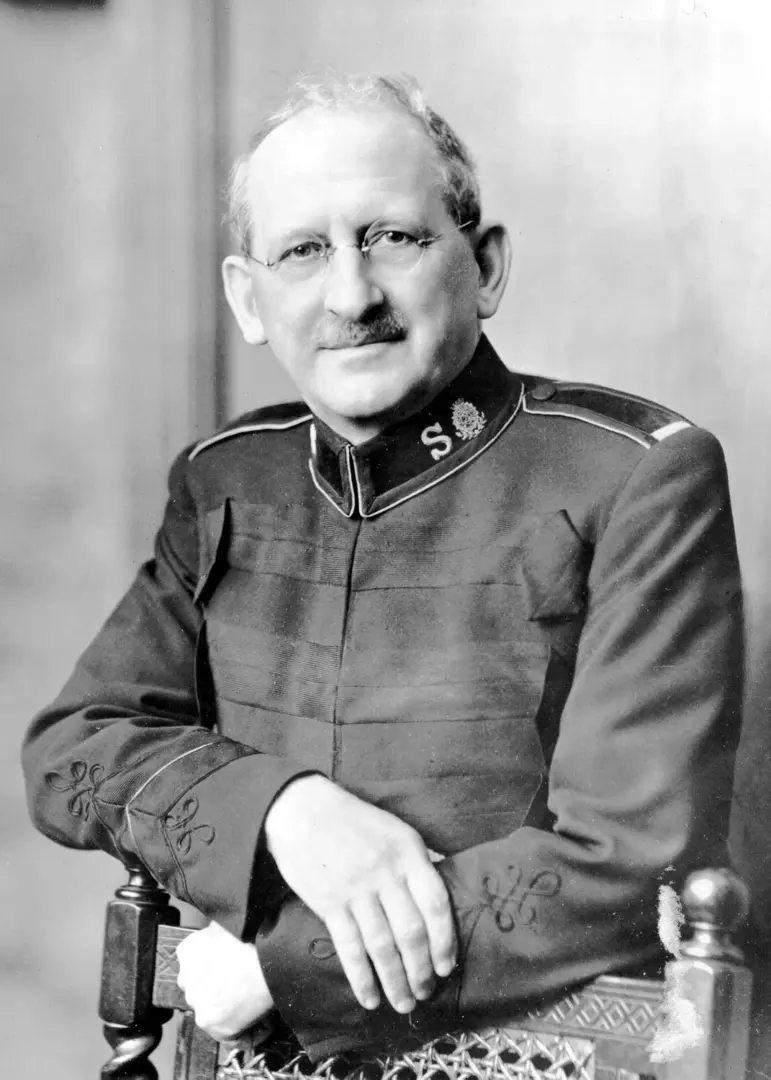
Albert Orsborn, 1946-1954
Albert Orsborn became an officer in 1905 and, barring a spell as Chief Secretary of New Zealand, spent his career prior to leadership in the UK. He served as Territorial Commander of Scotland and Ireland from 1936-1940 and as British Commissioner from 1940-1946. As General, Orsborn established the Advisory Council to the General as a means of widening the administrative base of The Salvation Army’s leader. He also approved The Salvation Army’s decision to become a founding member of the World Council of Churches (1948) and presided over the London establishment of the International College for Officers (1950).
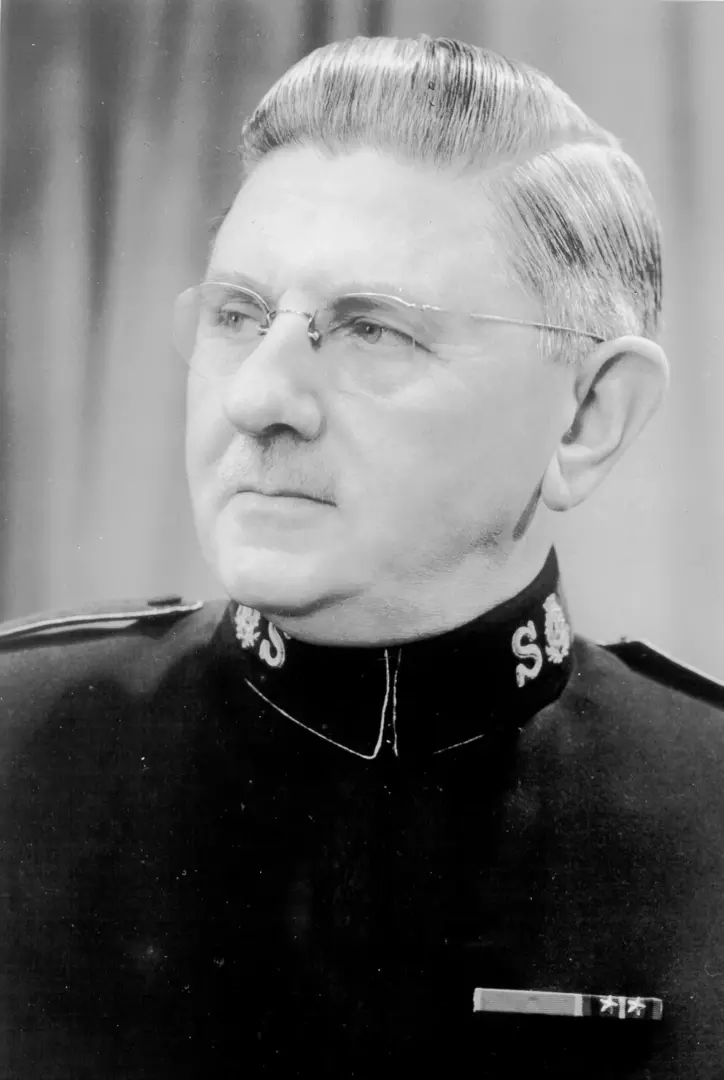
Wilfred Kitching, 1954-1963
Wilfred Kitching became an officer in 1914. After his early career in the British Territory, he served as Chief Secretary of Australia Southern Territory, Territorial Commander of Sweden, and British Commissioner. During his leadership, The Salvation Army's International Headquarters was reopened by HM Queen Elizabeth The Queen Mother, 22 years after the original building had been destroyed by bombing in the Second World War. Kitching was also a composer and author.
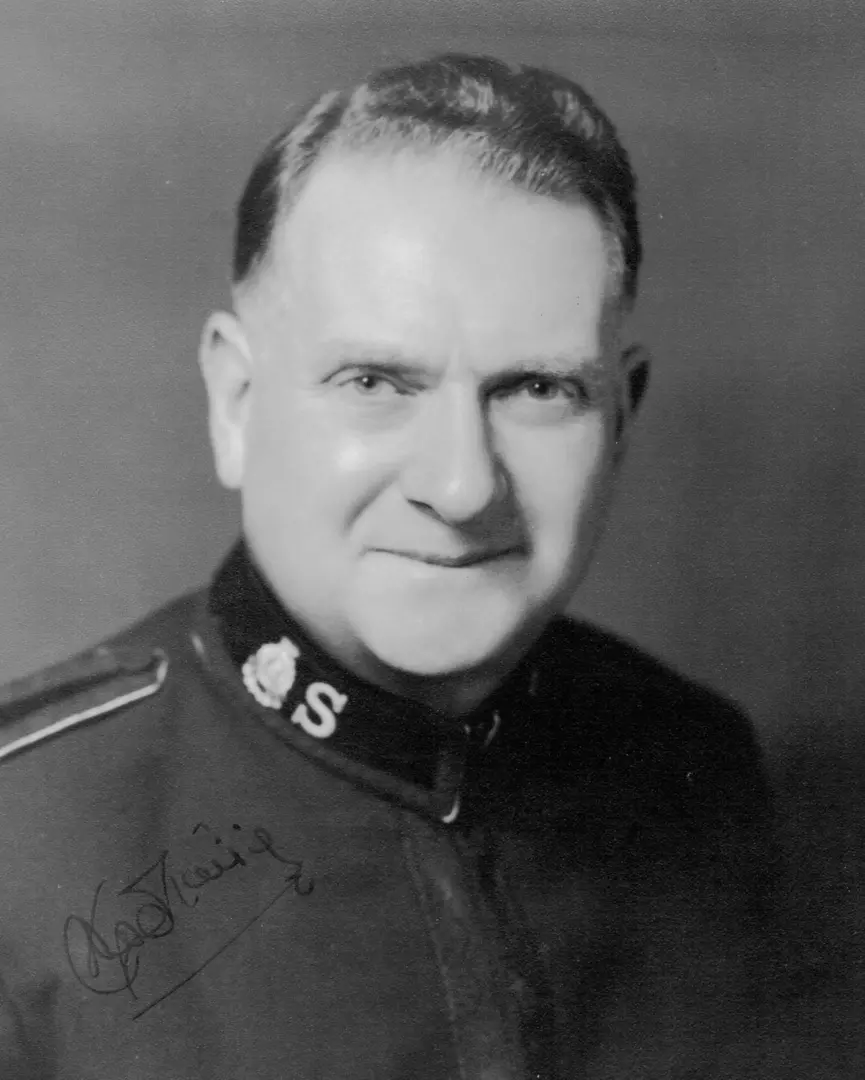
Frederick Coutts, 1963-1969
Prior to Salvation Army leadership Frederick Coutts served 18 years in the International Literary Department, authoring the 'International Company Orders' and editing 'The Officers' Review' before serving as Assistant Literary Secretary then Literary Secretary. Subsequently he served as Principal of the International Training College and Territorial Commander of Australia Eastern Territory. During his leadership he introduced Salvation Army advisory boards to the British Territory and launched the ‘For God’s Sake Care’ campaign (1967) to meet British social-welfare needs. Coutts presided over The Salvation Army’s centenary year celebrations in 1965, including an international gathering of thousands of Salvationists in London.
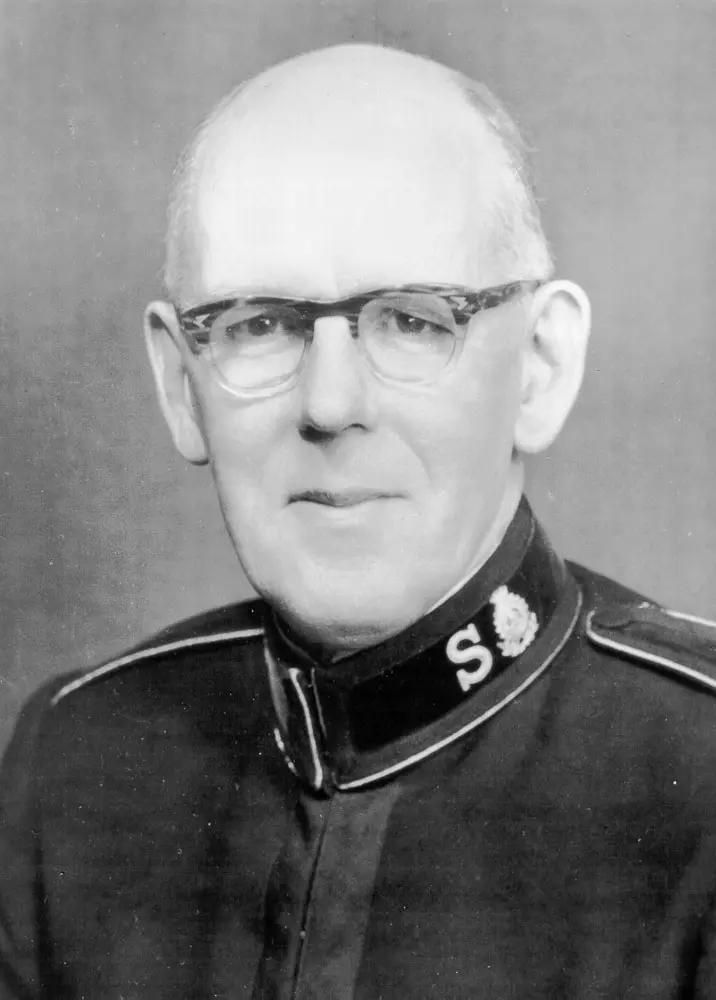
Erik Wickberg, 1969-1974
Erik Wickberg was born to Swedish parents in Switzerland, making him the first Swiss leader of The Salvation Army. He became an officer in 1925 and after service in Scotland, Germany and at International Headquarters, he transferred to Sweden in 1939. There he served the important role of Liaison Officer between International Headquarters and Salvation Army Territories in occupied Europe. Subsequent appointments included territorial command of Germany (1957-1961) and Chief of the Staff (1961-1969). As leader Wickberg encouraged the appointment of national officers to senior appointments, breaking with the standard of appointing British officers to lead Salvation Army territories.
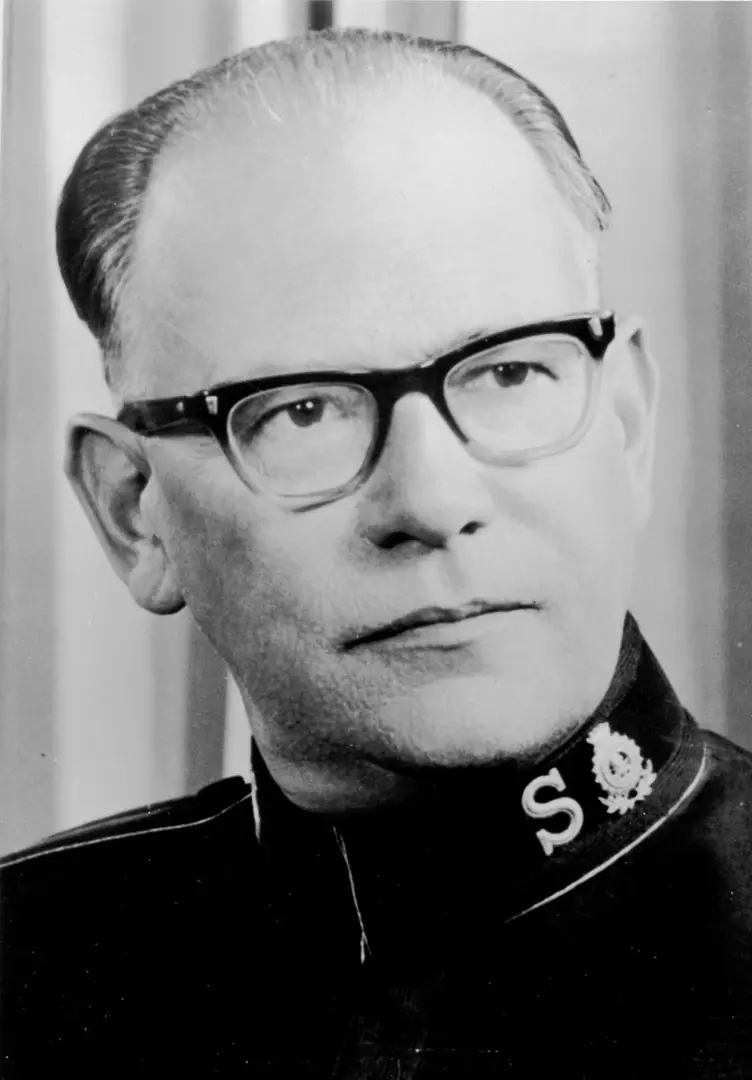
Clarence Wiseman, 1974-1977
Clarence Wiseman was the first of two successive Canadian Generals. He became an officer in 1927 and served in corps and editorial work in Canada. The Second World War saw him serve as a chaplain with the Canadian forces overseas, then as Senior Representative of the Canadian Red Shield Services Overseas. He returned to Canada until 1960 when he was appointed to the territorial command of East Africa. A spell as Principal of the International Training College in London preceded his return to his home territory as Territorial Commander. He was elected General in 1974.
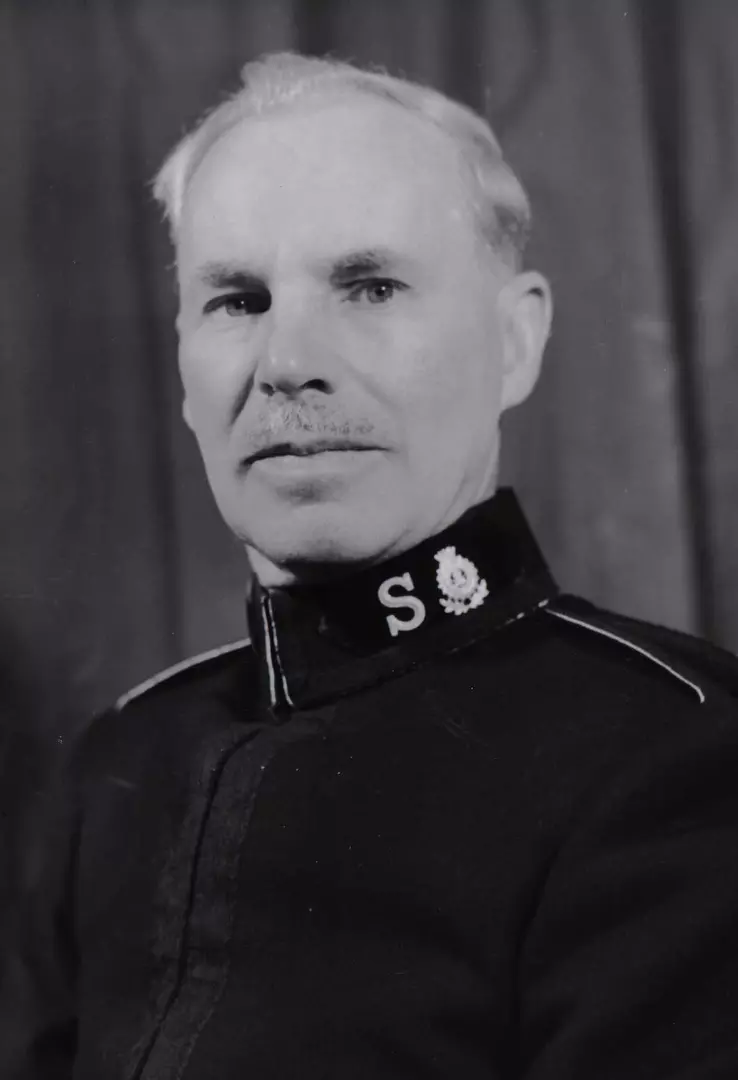
Arnold Brown, 1977-1981
Arnold Brown became an officer in 1935 and served in his home territory of Canada until 1964. A transfer to International Headquarters saw him serve as Secretary for Public Relations (overseeing the 1967 'For God's Sake Care' campaign) then as Chief of the Staff (1969-1974). A return to Canada as Territorial Commander preceded his election as General. During his leadership he encouraged relationships with international donor and development agencies and established the International Planning and Development Department (1978). He also led The Salvation Army’s resignation from the World Council of Churches (1981).
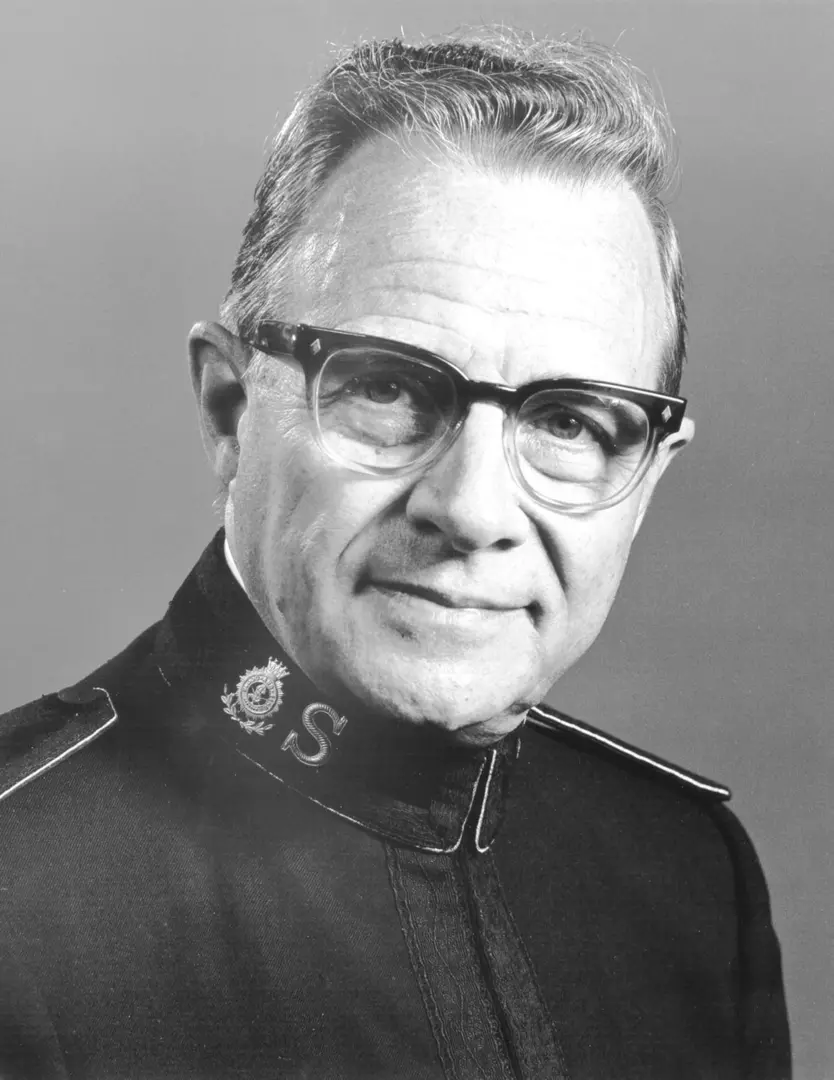
Jarl Wahlström, 1981-1986
Jarl Wahlström was the first Finnish General of The Salvation Army. He became an officer in 1938 and served in the Finland Territory until 1972. This included a spell as chaplain to the Finnish armed forces during the Second World War. After serving as Chief Secretary of his home territory from 1968-1972, he held the same appointment in Canada and Bermuda (1972-1976) before a return to his home territory as Territorial Commander. A subsequent appointment as Territorial Commander of Sweden was cut short by his election as General. During his tenure The Salvation Army held an International Leaders’ Conference in Berlin (1984), a Holy Land Congress (1985) and an International Youth Congress in Macomb, Illinois (1985). The International Youth Congress was the first Salvation Army international congress to be held outside the United Kingdom.
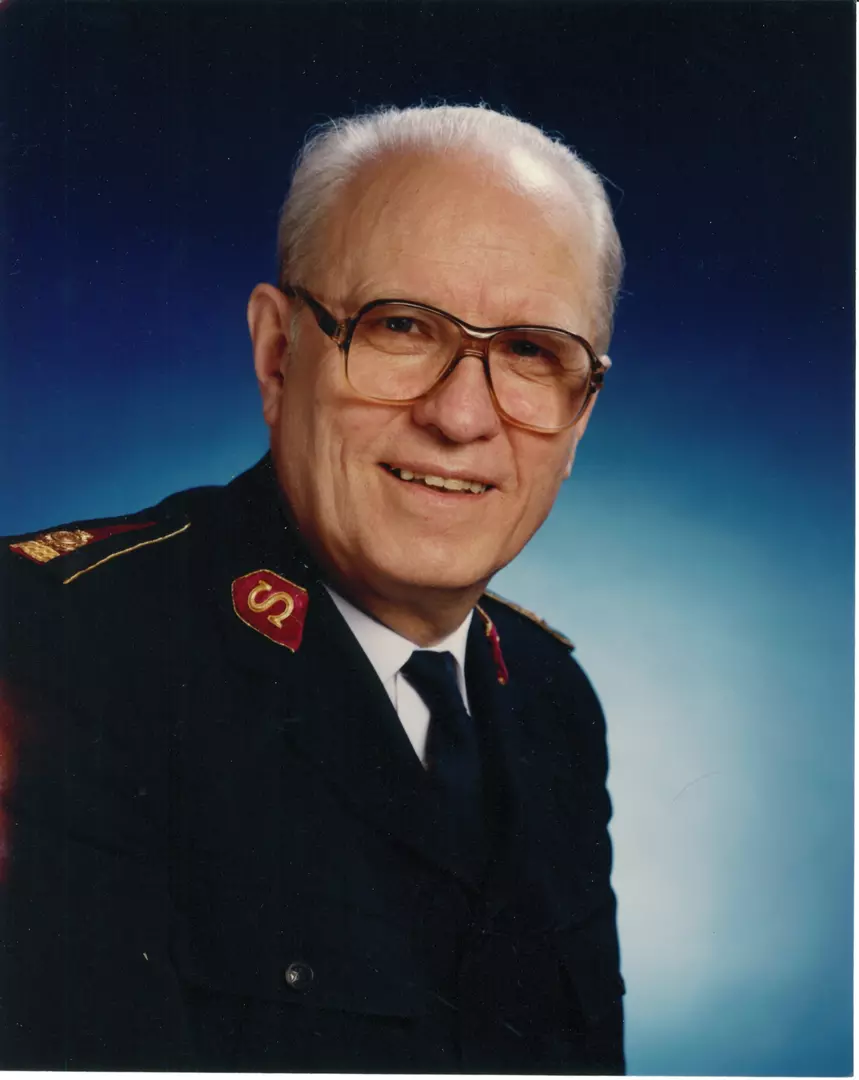
Eva Burrows, 1986-1993
Prior to leadership Eva Burrows’ appointments included 17 years of educational work in Zimbabwe, leadership of the International College for Officers, leader of Women’s Social Services in Great Britain and Ireland and territorial command of Sri Lanka, Scotland and Australia Southern.
Burrows presided over the restructuring of International Headquarters (IHQ) and its relation with the British Territorial administration. As a result IHQ established a clearer administrative relation to all territories and the United Kingdom Territory with the Republic of Ireland was formed (1990). Burrows established a Moral and Social Issues Council (1986) to address ethical concerns and produce Salvation Army positional statements; she also presided over the establishment of Salvation Army Leadership Training and convened an International Congress (1990).
The High Council voted to extend Burrows’ term by almost two years, an unprecedented length for a Salvation Army leader.
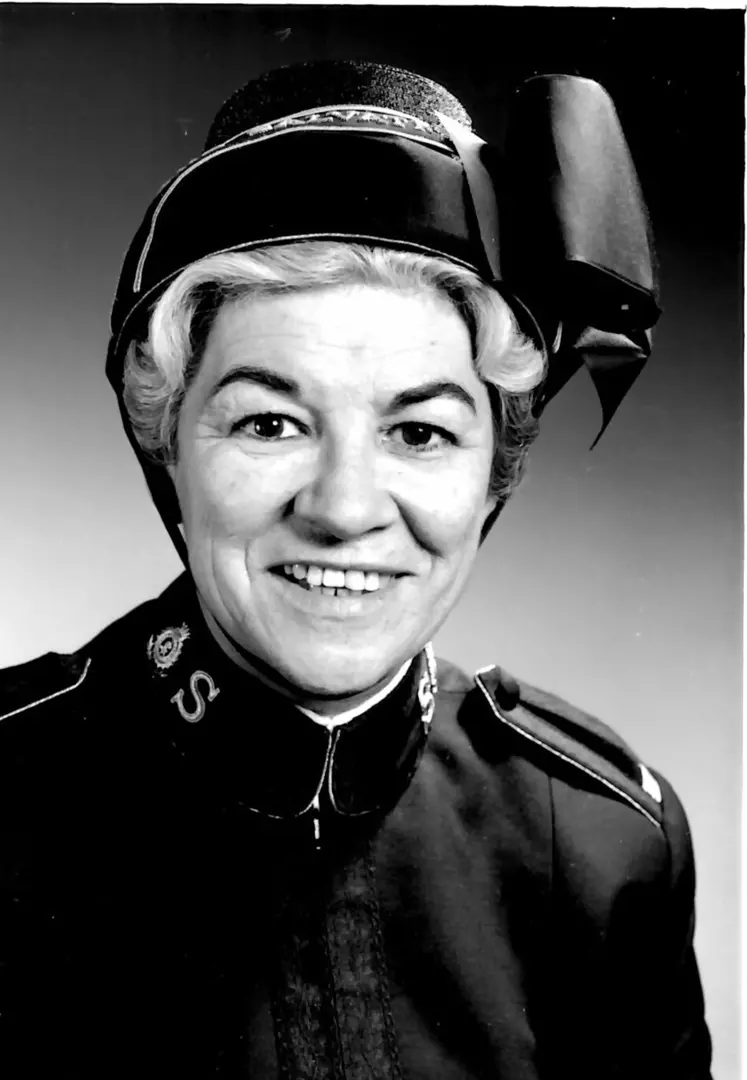
Bramwell Tillsley, 1993-1994
Bramwell Tillsley became an officer in 1956. The third General to hail from Canada, he served in Canada and the USA until 1981 when an appointment as Principal of the International Training College brought him to the UK. Appointments as Chief Secretary of USA Southern and Territorial Commander of Australia Southern followed before two years as Chief of the Staff to General Burrows. Bramwell Tillsley served as leader for ten months before The Salvation Army announced his retirement due to health reasons.
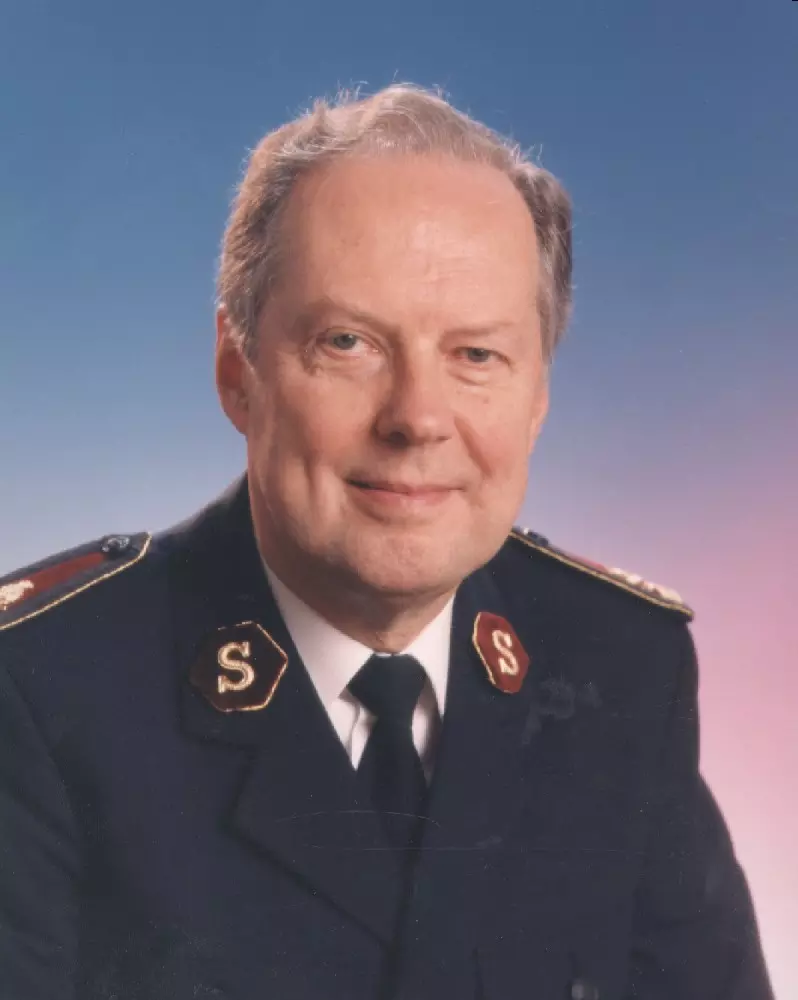
Paul Rader, 1994-1999
Paul Rader was the first American-born Salvation Army leader. His career prior to leadership was split between the USA and Korea, where he spent 22 years of service culminating as Chief Secretary (1977-1984). A return to the USA then saw him serve both in its Eastern and Western Territories; his last appointment before his election was as Territorial Commander USA Western from 1989-1994. As General, he initiated progressive plans to achieve gender equality within officers’ ministry, including the promotion of all married women officers to hold their own ranks. This qualified married women commissioners to serve the High Council. Rader also established an International Spiritual Life Commission (1996) to review the methods of worship and spiritual life of Salvationists.
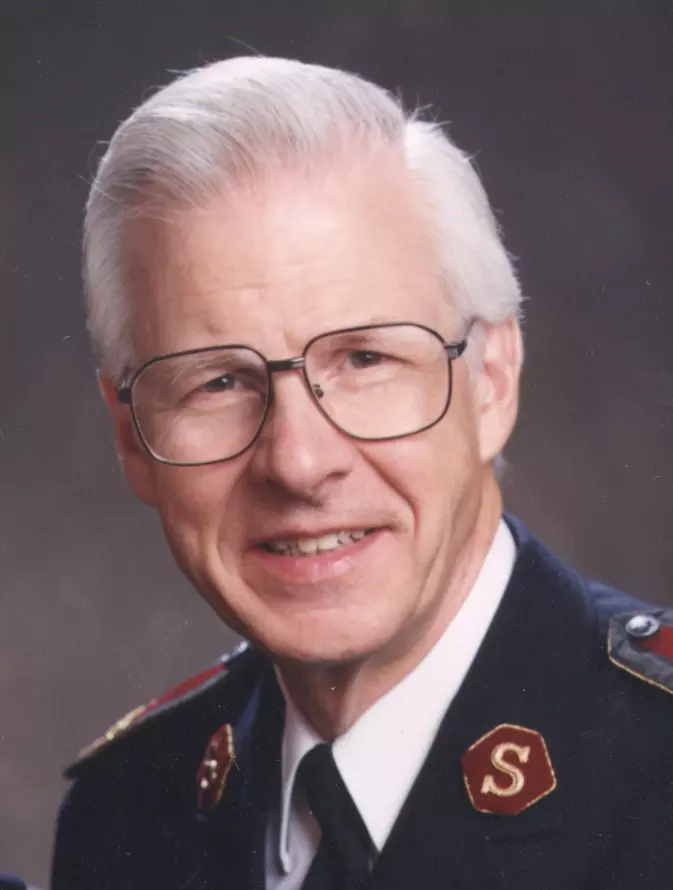
John Gowans, 1999-2002
John Gowans was commissioned in 1955 and first served in the British Territory as a corps officer, Divisional Youth Secretary, National Stewardship Secretary and Divisional Commander. International appointments followed in France and USA Western before his appointment to the territorial commands of France, Australia East and Papua New Guinea, and the United Kingdom with the Republic of Ireland. Elected General in 1999, John Gowans was a songwriter known for his musical collaborations with John Larsson. He also authored the 'O Lord!' poetry series.
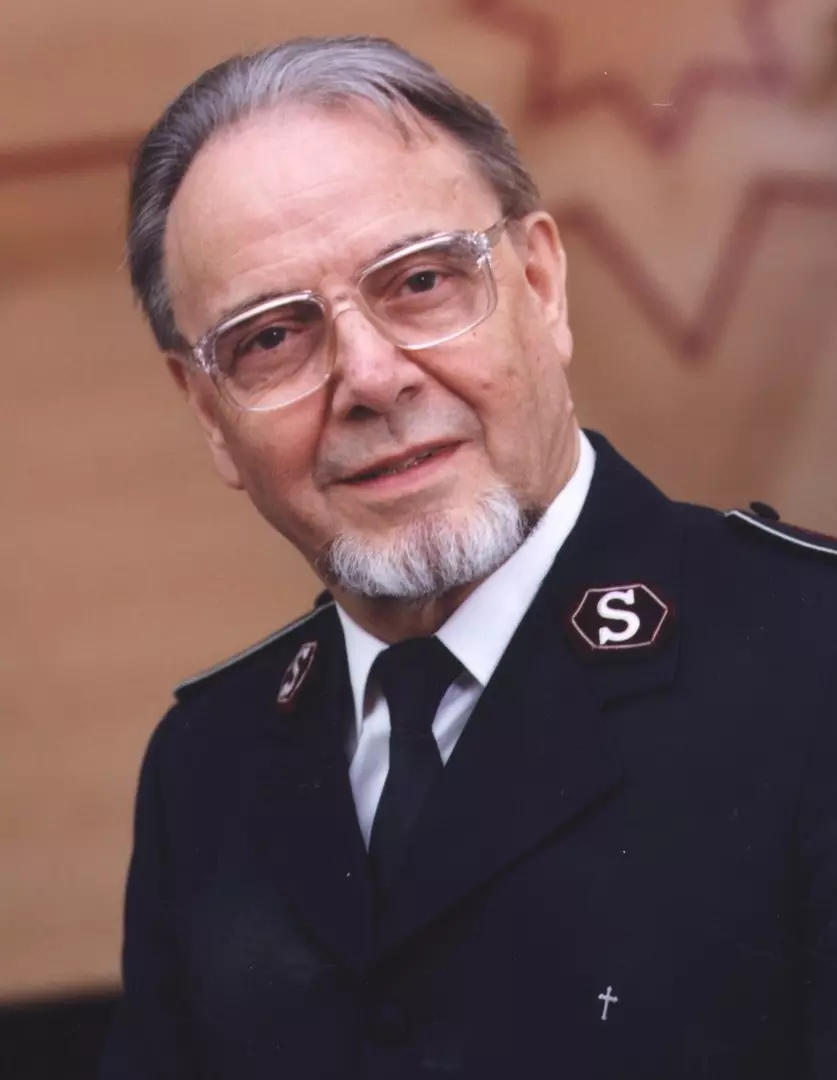
John Larsson, 2002-2006
John Larsson became an officer in 1957 and served in the UK in corps appointments, at the International Training College, as Territorial Youth Secretary for Scotland, and as National Youth Secretary. 1980 saw him move to South America West Territory as Chief Secretary. He became Principal of the International Training College in 1984 before being appointed to assist in the preparation for the administrative division of International Headquarters and the British Territory (1988-1990). He then served as territorial commander for the newly formed United Kingdom Territory with the Republic of Ireland and subsequently New Zealand, Fiji & Tonga Territory and Sweden & Latvia Territory. Before his own election as General, Larsson served as Chief of the Staff (1999-2002) for General John Gowans. The two men are well known for their musical collaborations, co-authoring ten musicals for which Larsson composed the music. Larsson was also the author of many books.
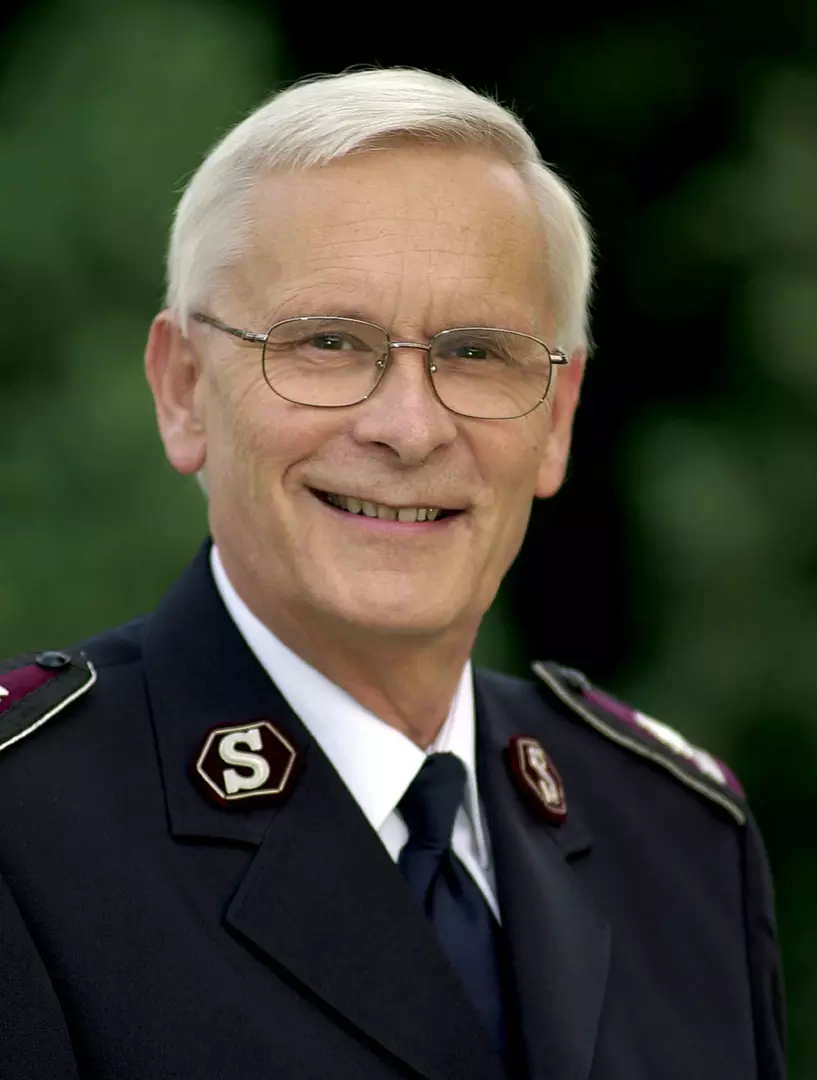
Shaw Clifton, 2006-2011
Shaw Clifton was commissioned as an officer in 1973 and served briefly as a corps officer in the British Territory before transferring to International Headquarters as Literary Secretary in 1974. International service in Zimbabwe followed, as Vice Principal of Mazoe Secondary School and commanding officer of Bulawayo Citadel. His return to the UK brought further corps appointments in the British Territory and service at International Headquarters as Legal and Parliamentary Secretary. He served as a Divisional Commander in the United Kingdom Territory with the Republic of Ireland and USA Eastern Territory before receiving three successive Territorial Commander appointments: Pakistan; New Zealand, Fiji and Tonga; and the UK with the Republic of Ireland. He was elected General in 2006. A qualified lawyer and a PhD, Shaw Clifton was also a prolific author.
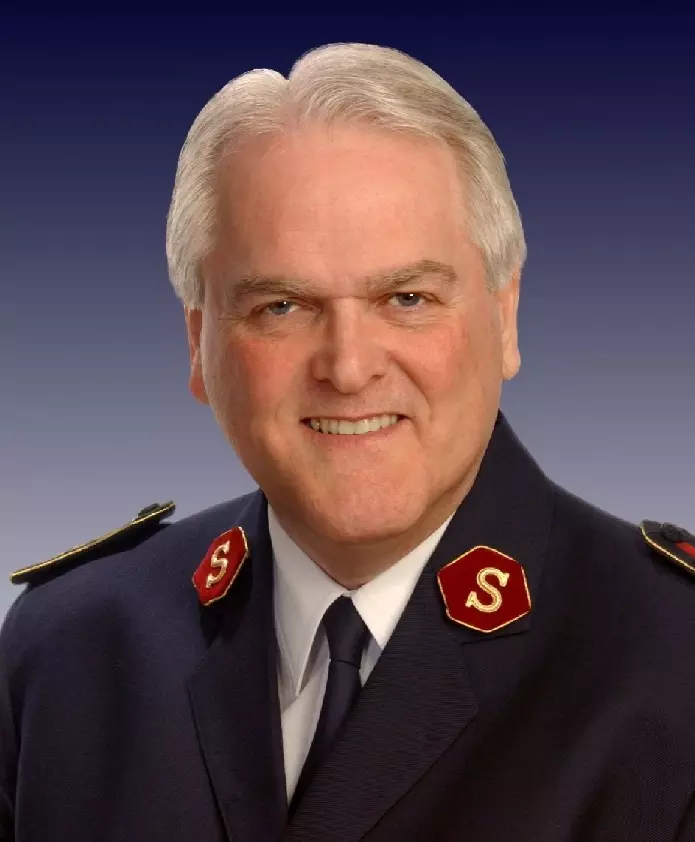
Linda Bond, 2011-2013
Linda Bond was the third female leader of The Salvation Army. Commissioned in Canada in 1968, her early appointments in her home Territory were in corps officership and at the Training College. She then served as Secretary for Candidates, Divisional Secretary and Divisional Commander before a move to International Headquarters as Under Secretary for Personnel in 1995. This was succeeded by a spell in the United Kingdom Territory with the Republic of Ireland as a Divisional Commander, then a return to her home Territory as Chief Secretary. From 2002-2004 she held the dual appointment of Territorial Commander and Territorial President of Women's Ministries in the USA Western Territory, and from 2009-2011 did the same in Australia Eastern Territory. Between these she served at International Headquarters as Secretary for Spiritual Life Development and International External Relations. She returned to International Headquarters on her election as General in 2011.
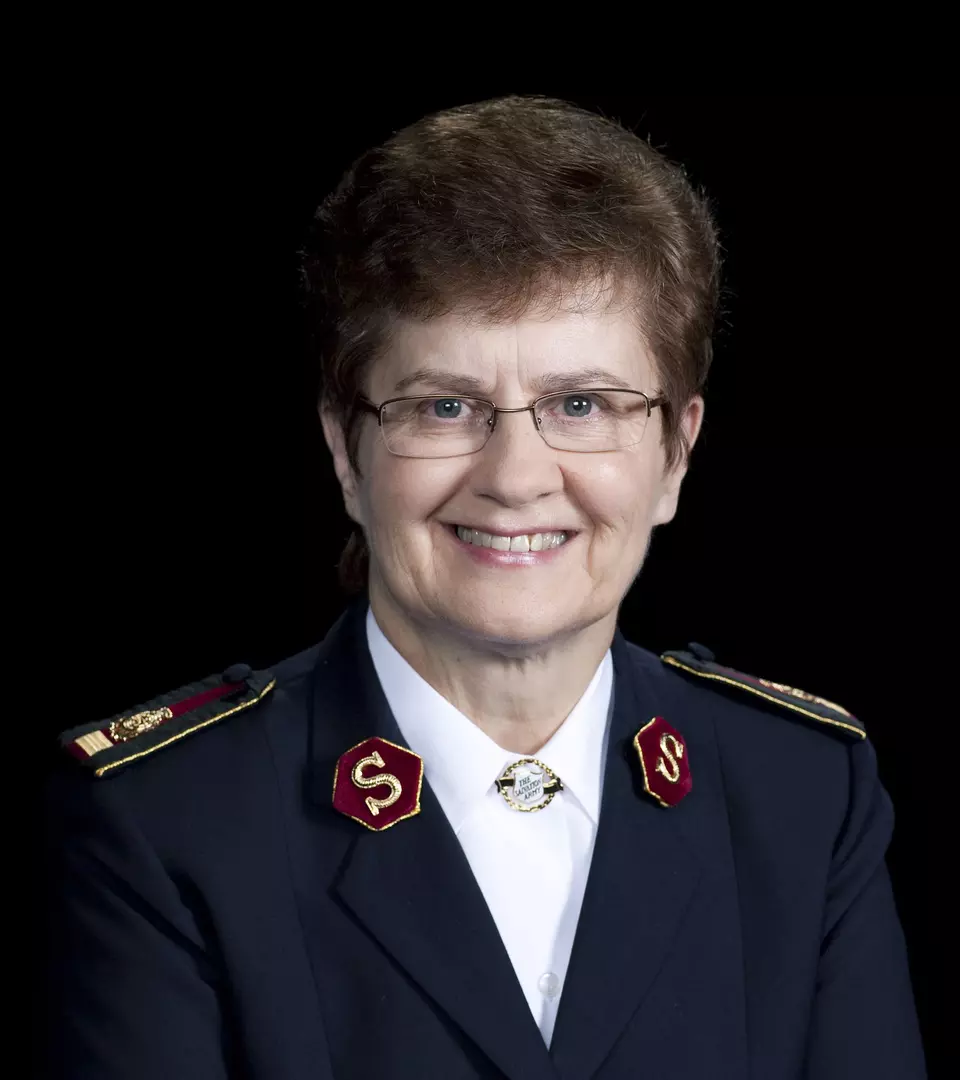
André Cox, 2013-2018
André Cox was born in Zimbabwe to English and Swiss parents. Commissioned as an officer in 1979, his first years of service were spent as a corps officer in Switzerland and Austria Territory before a move to Zimbabwe brought appointments as Public Relations Secretary and Financial Secretary. Returning to the Switzerland, Austria and Hungary Territory in 1997, he served as Head of Communications and Business Administrator. In 2005 came his first of three successive appointments as Territorial Commander: Finland and Estonia, Southern Africa and the United Kingdom with the Republic of Ireland. He served briefly as Chief of the Staff from February to August 2013 before being elected General.
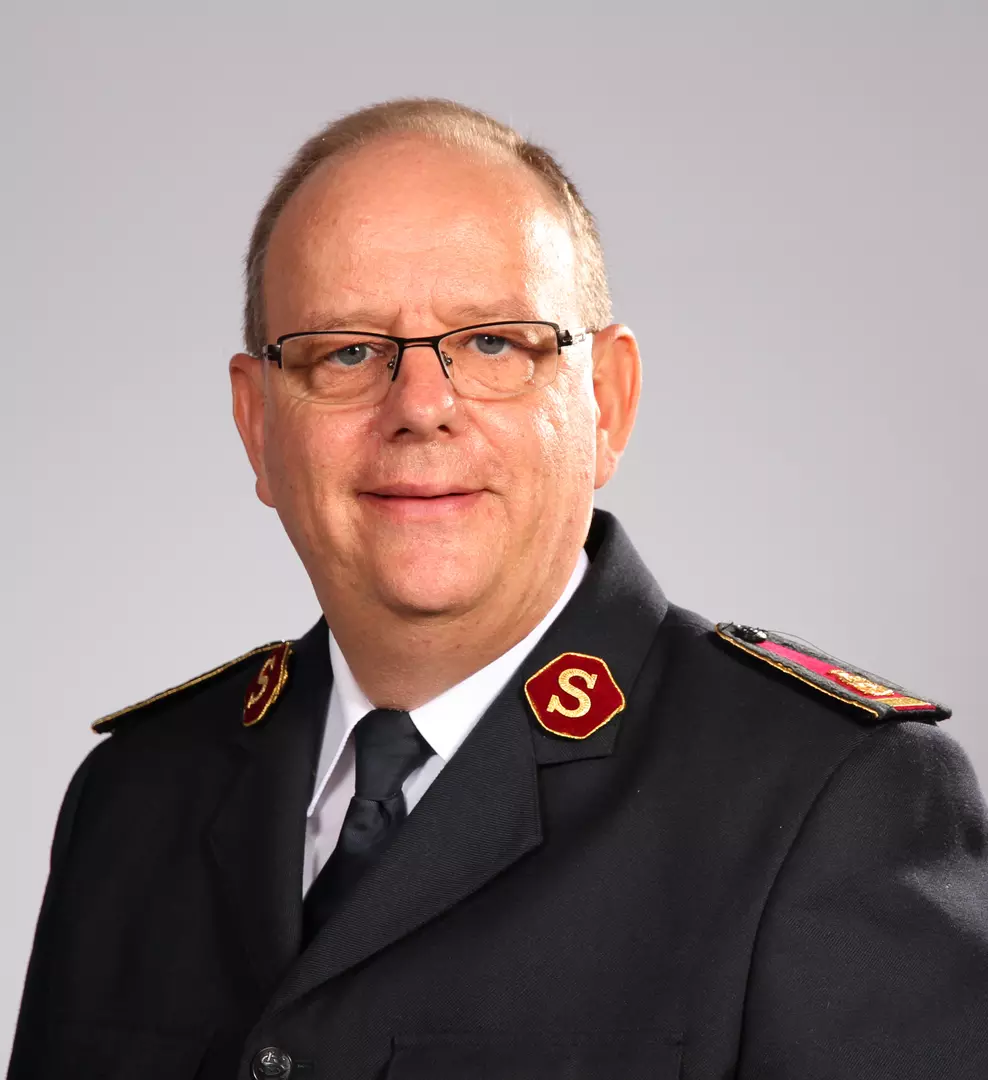
Brian Peddle, 2018-2023
Commissioned as an officer in 1977 as a member of the Companions of Christ Session, Brian Peddle served in Canada & Bermuda Territory until 2007. Appointments in the Territory included corps officership, the Training College, Divisional Youth Secretary, Divisional Secretary for Programme, and Divisional Commander. In 2007, he moved to the New Zealand, Fiji and Tonga Territory as a Divisional Commander, then in 2009, was appointed Chief Secretary of the United Kingdom Territory with the Republic of Ireland. A return to his home Territory as Territorial Commander preceded his transfer to International Headquarters where he served from 2014-2023, first as International Secretary for the Americas and Caribbean, then Chief of the Staff and finally General.
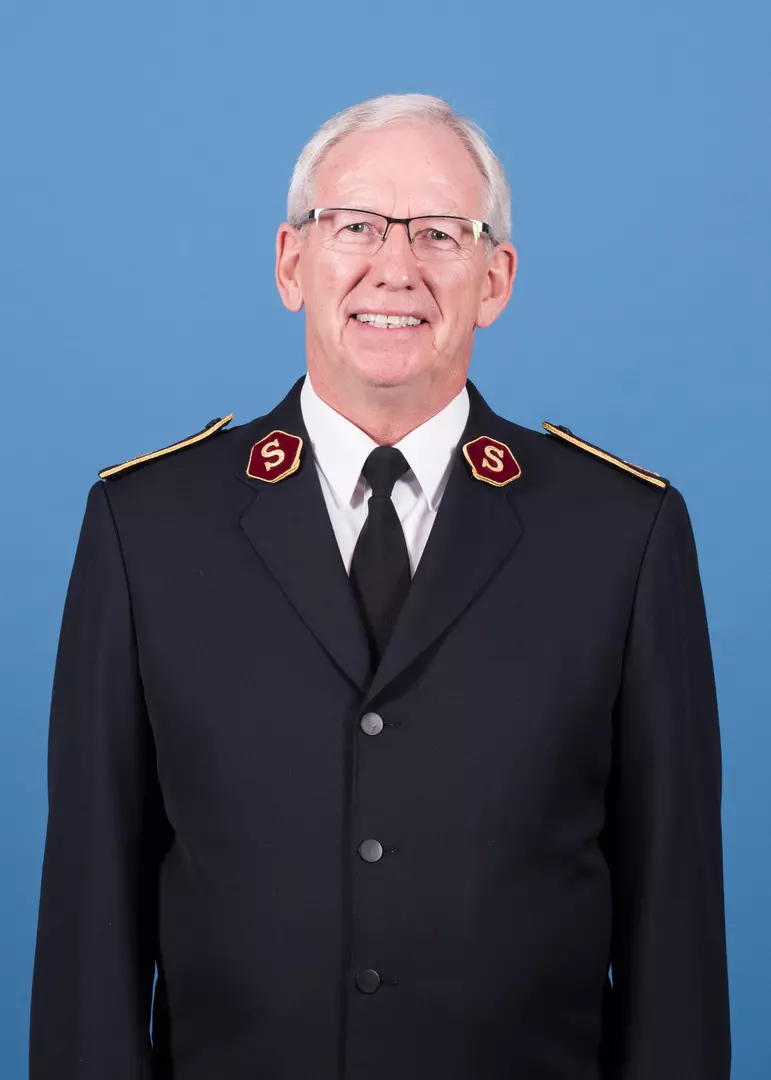
General Lyndon Buckingham, 2023-
Commissioned in 1990 as a member of the Ambassadors for Christ Session, Lyndon Buckingham has served in corps appointments in his home Territory of New Zealand, Fiji and Tonga as well as in Canada. Other early appointments with his wife Bronwyn included Territorial Youth and Candidates Secretaries, Divisional Leaders and Territorial Programme Secretaries. In February 2013, Lyndon Buckingham was appointed to the Singapore, Malaysia and Myanmar Territory as Chief Secretary before assuming territorial leadership in June 2013. In January 2018 he was appointed to lead the United Kingdom and Ireland Territory as Territorial Commander, before a transfer to International Headquarters as Chief of the Staff in August that year. Elected General at the High Council held in May 2023, he took office on 3 August 2023.
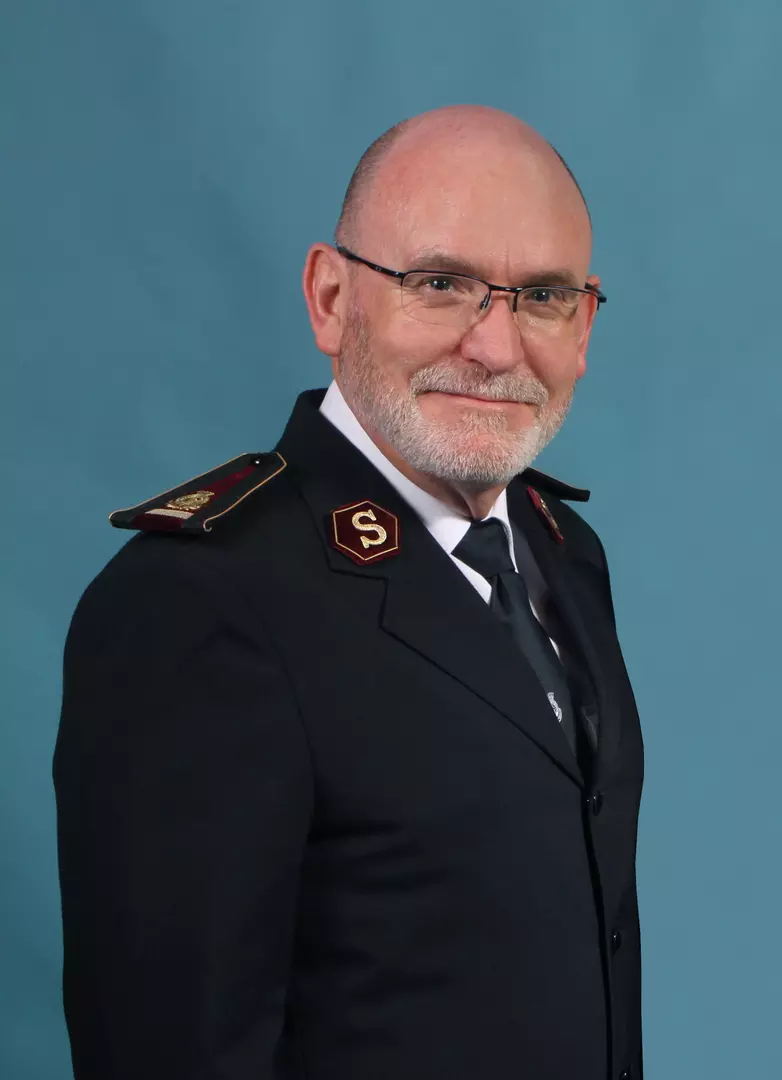

William Booth
William Booth was born in Nottingham on 10 April 1829, the son of Samuel Booth and his second wife Mary.

Catherine Booth
Catherine Booth was born in 1829 in Derbyshire, to Sarah and John Mumford.

Early pioneers
Find out about the achievements of some of The Salvation Army's earliest recruits.

People
Find out more about The Salvation Army’s founders, leaders and early pioneers.